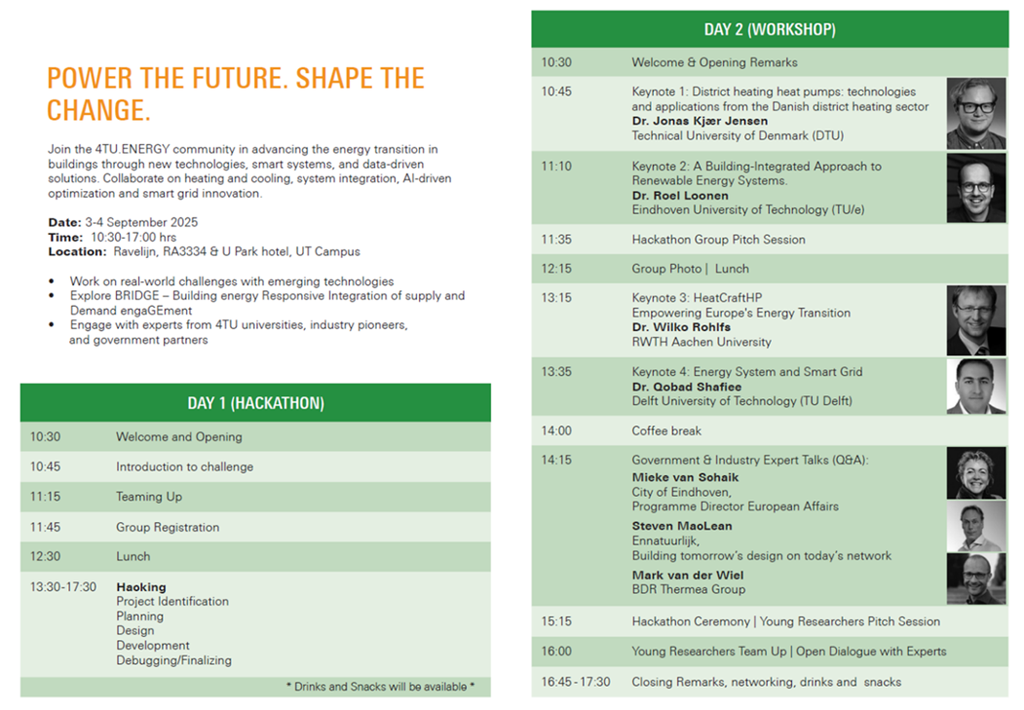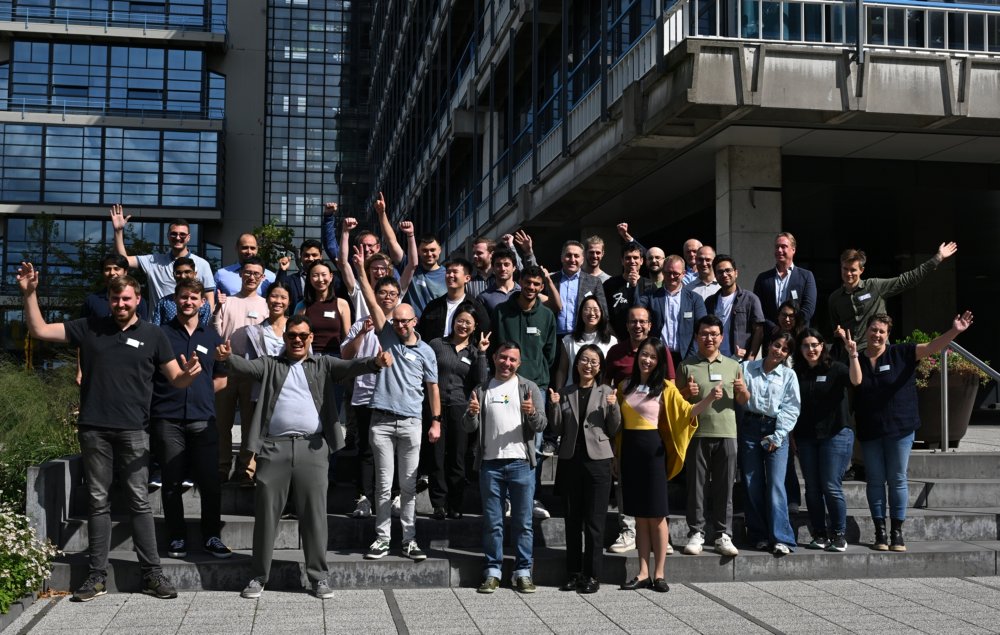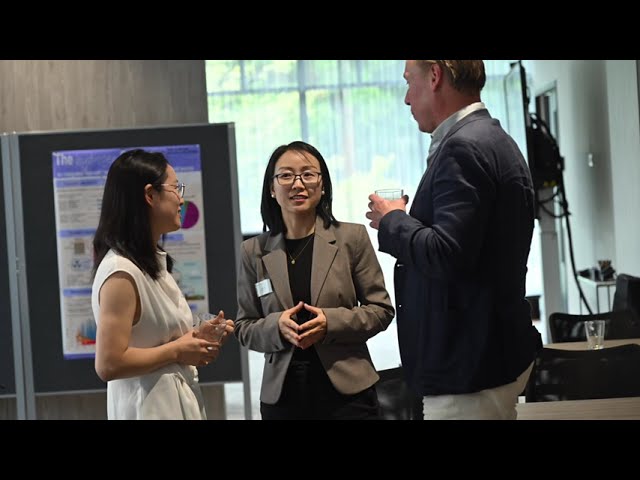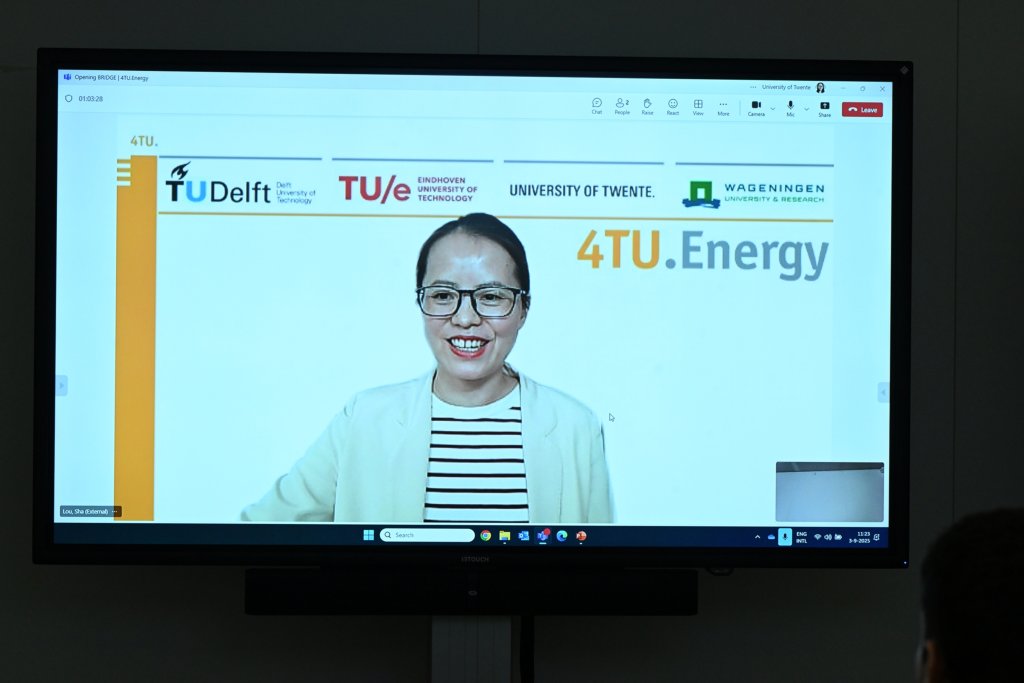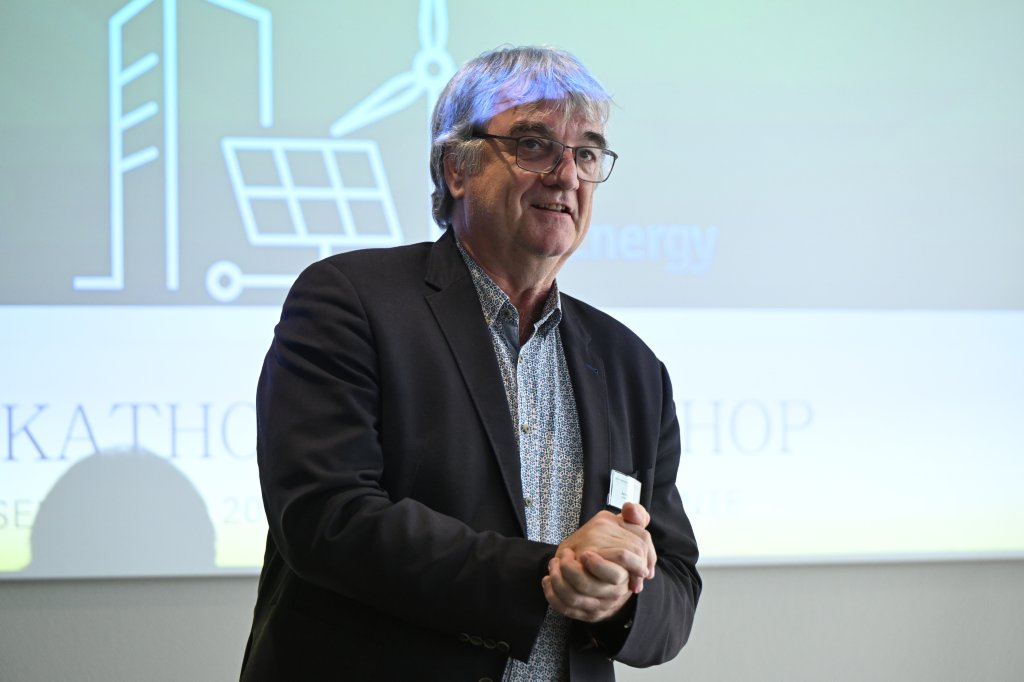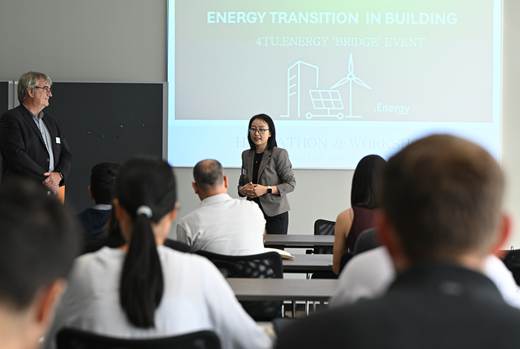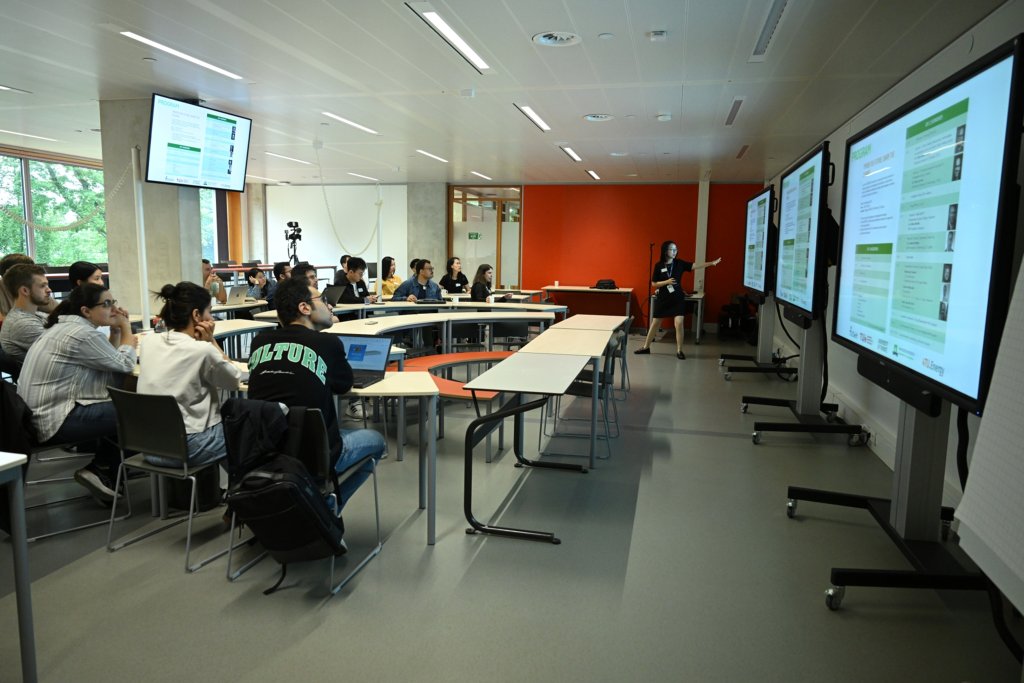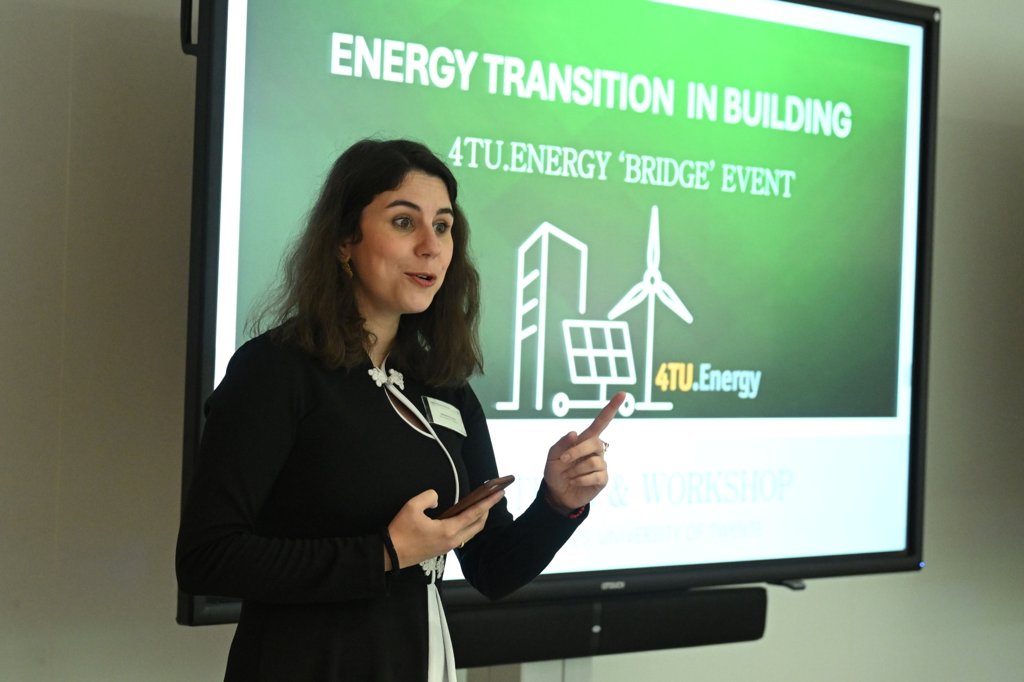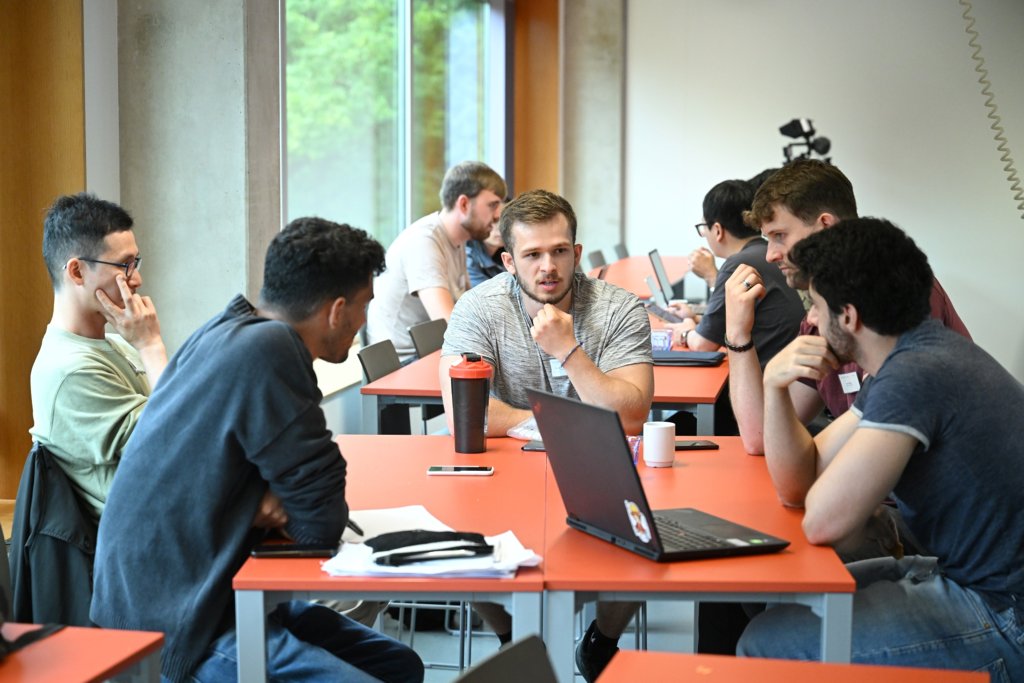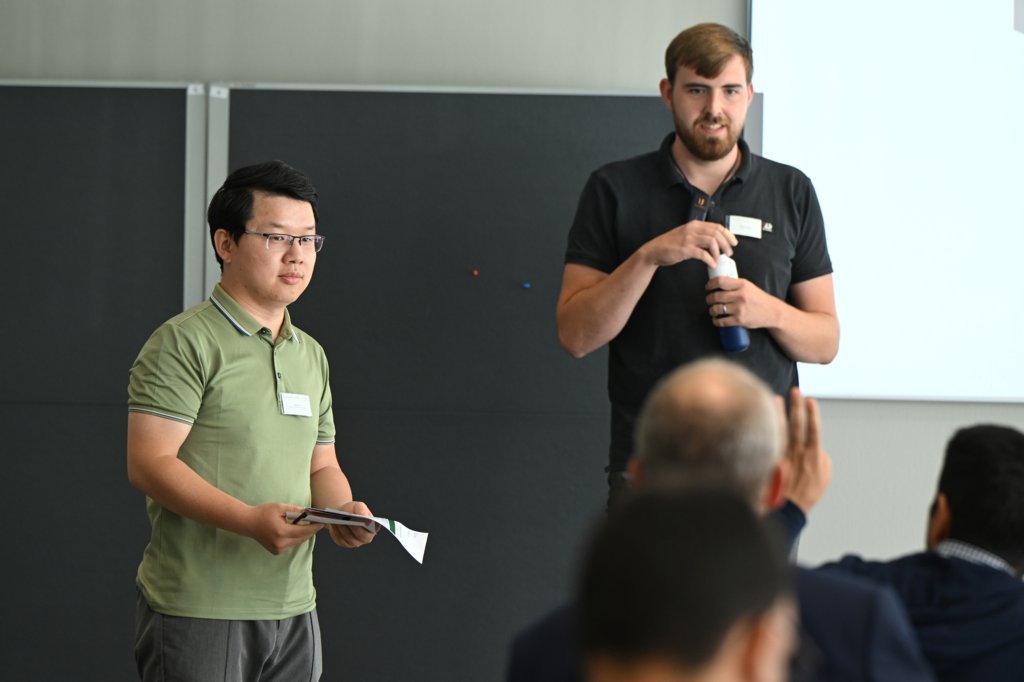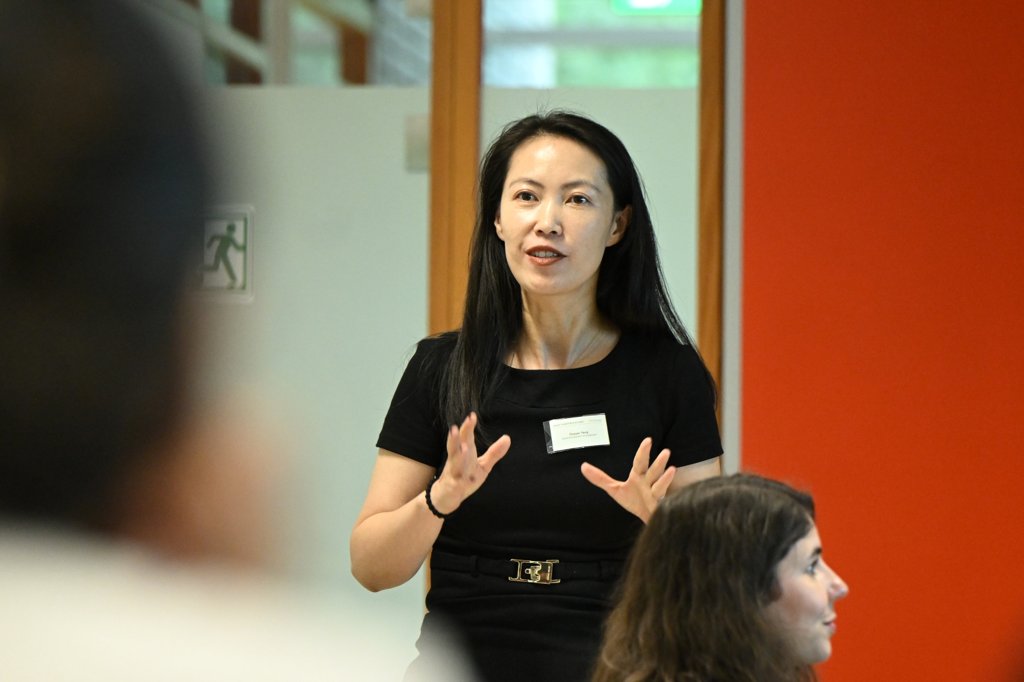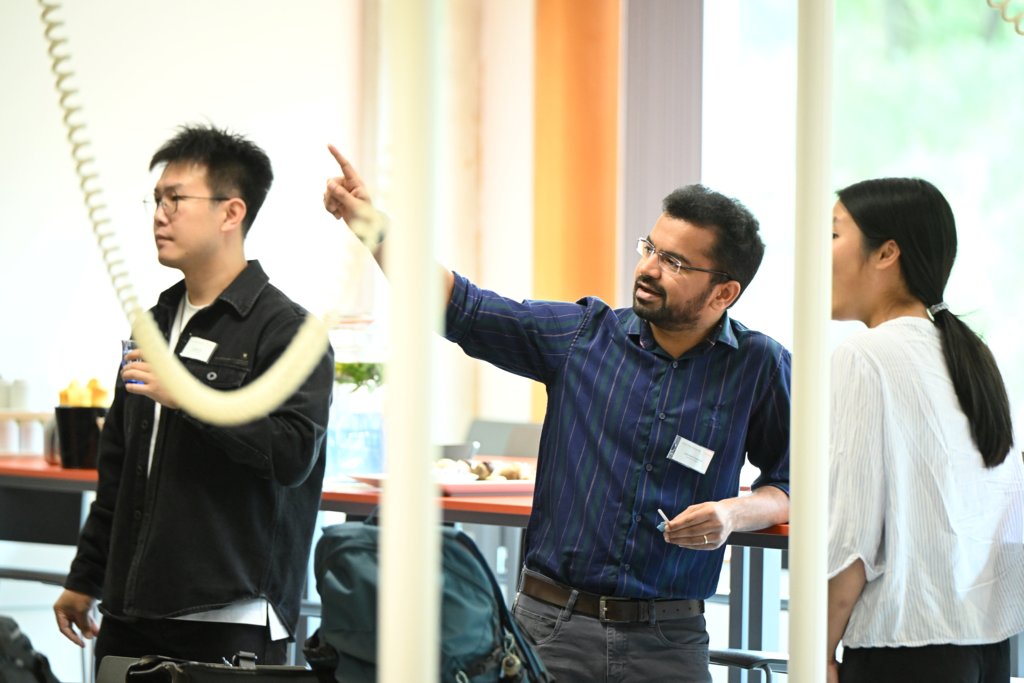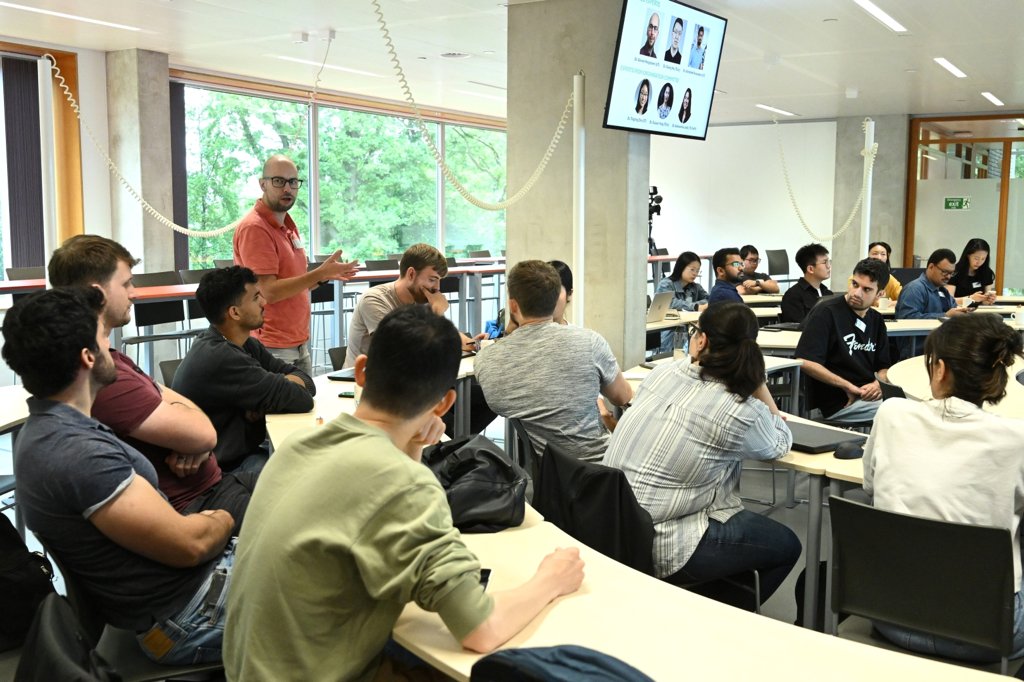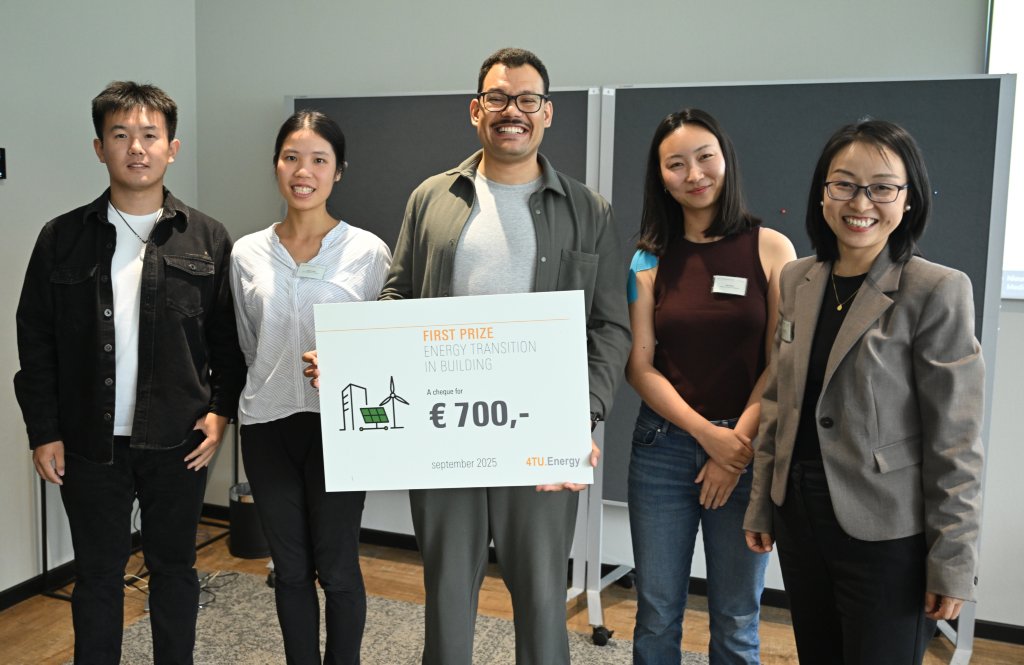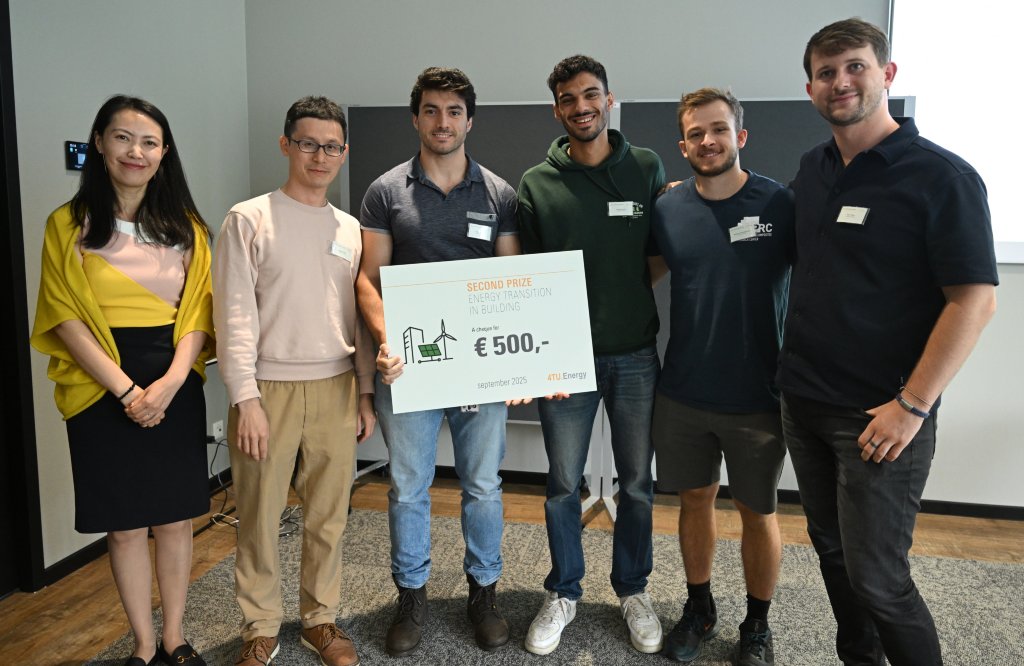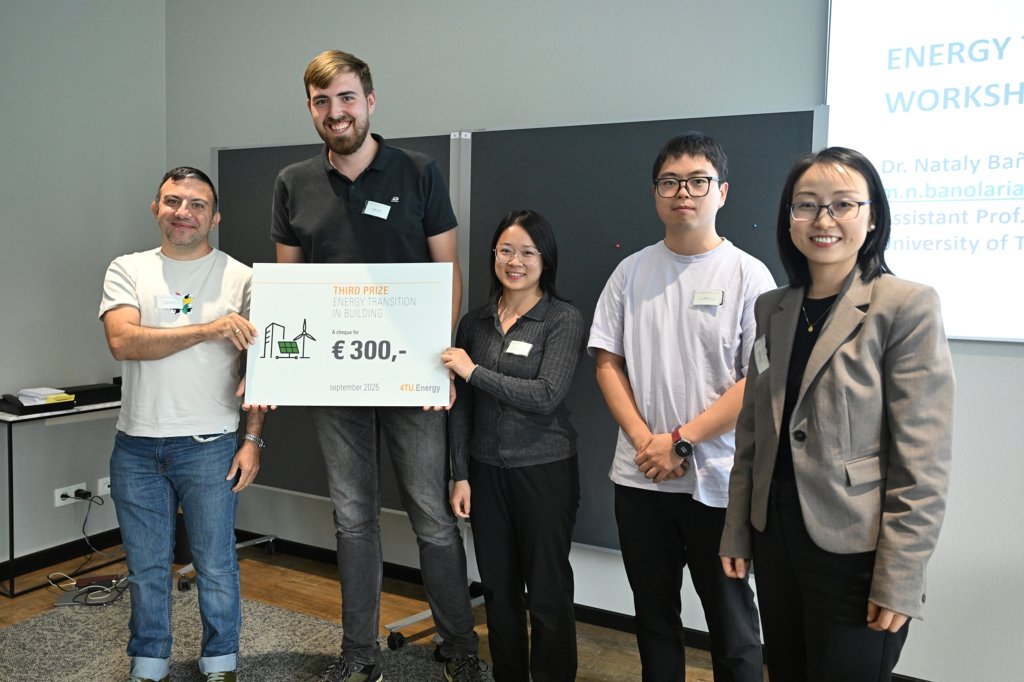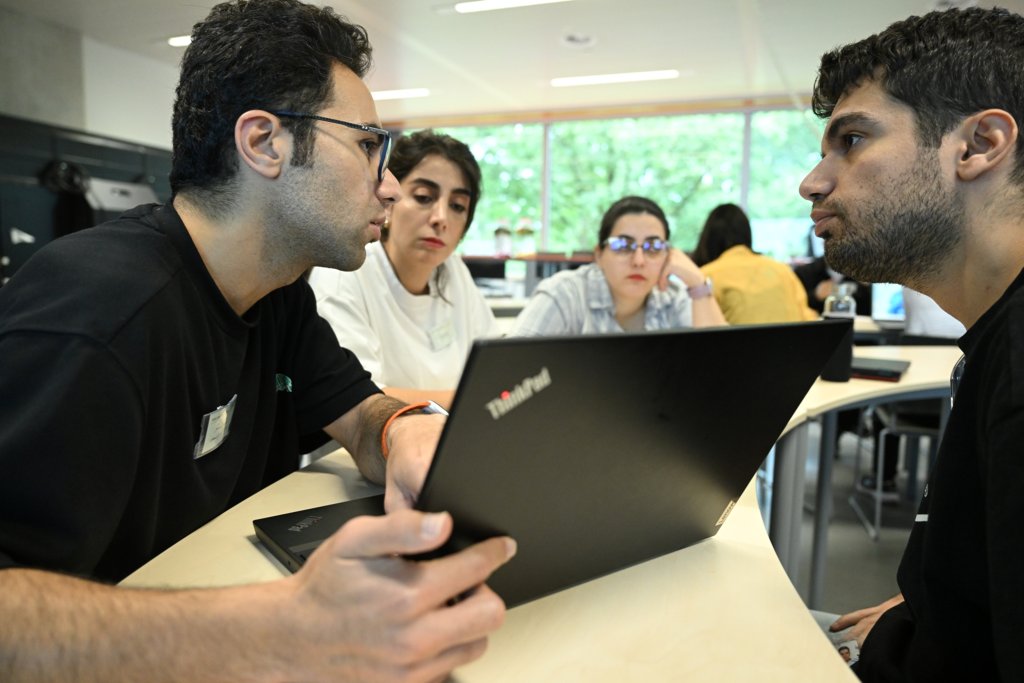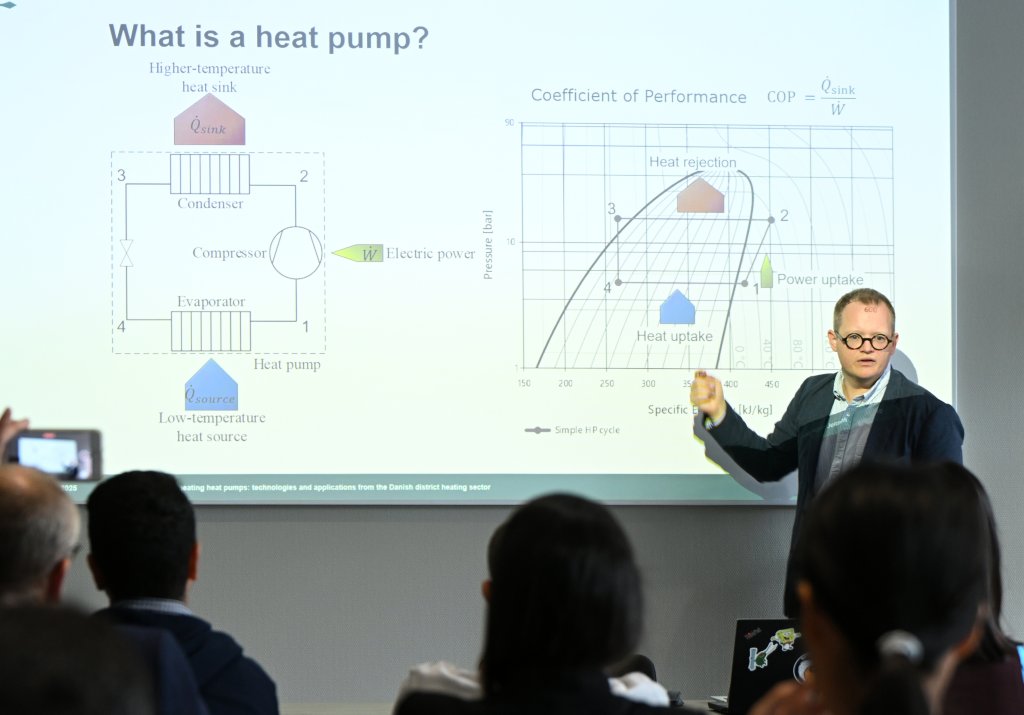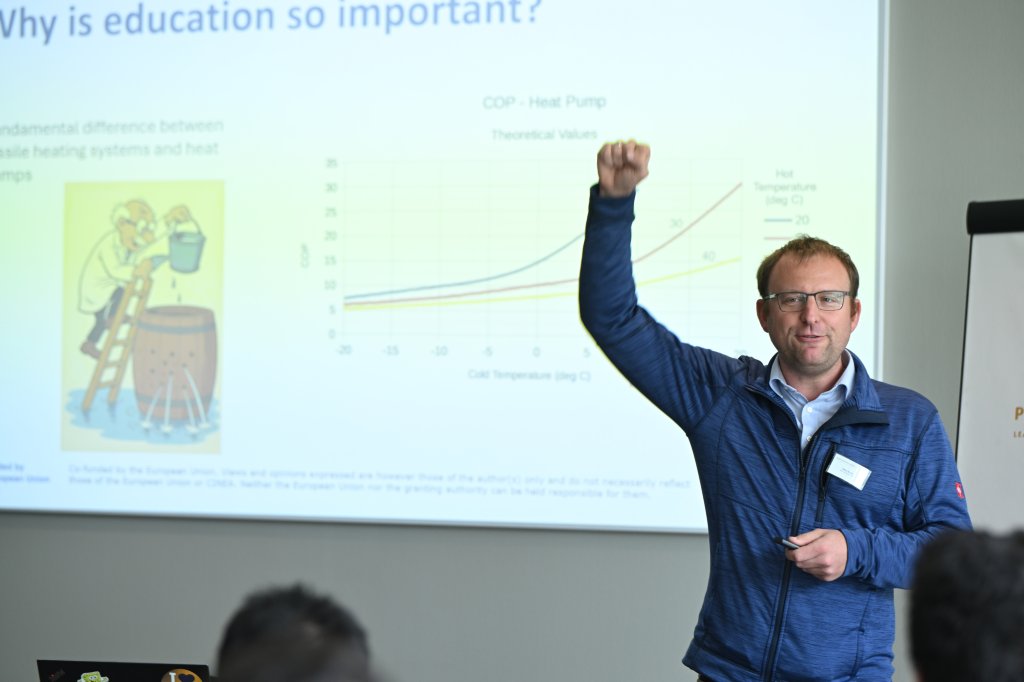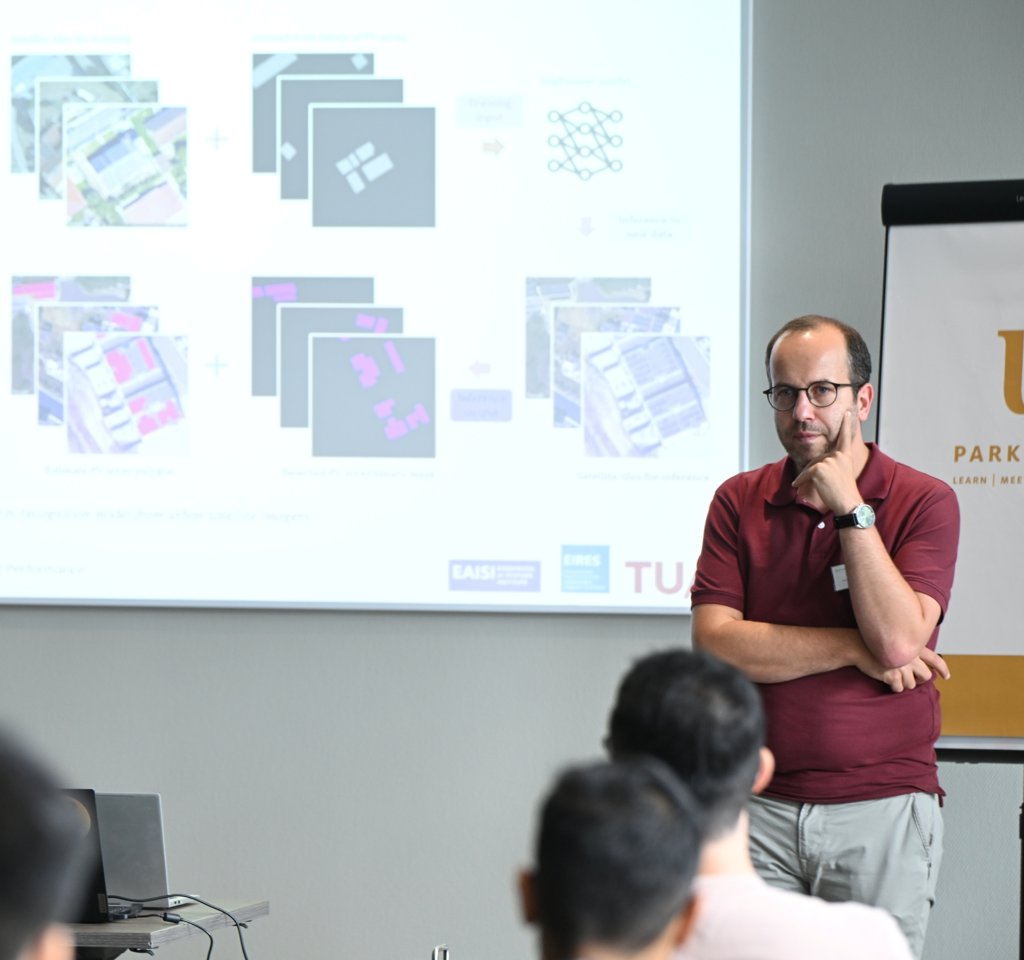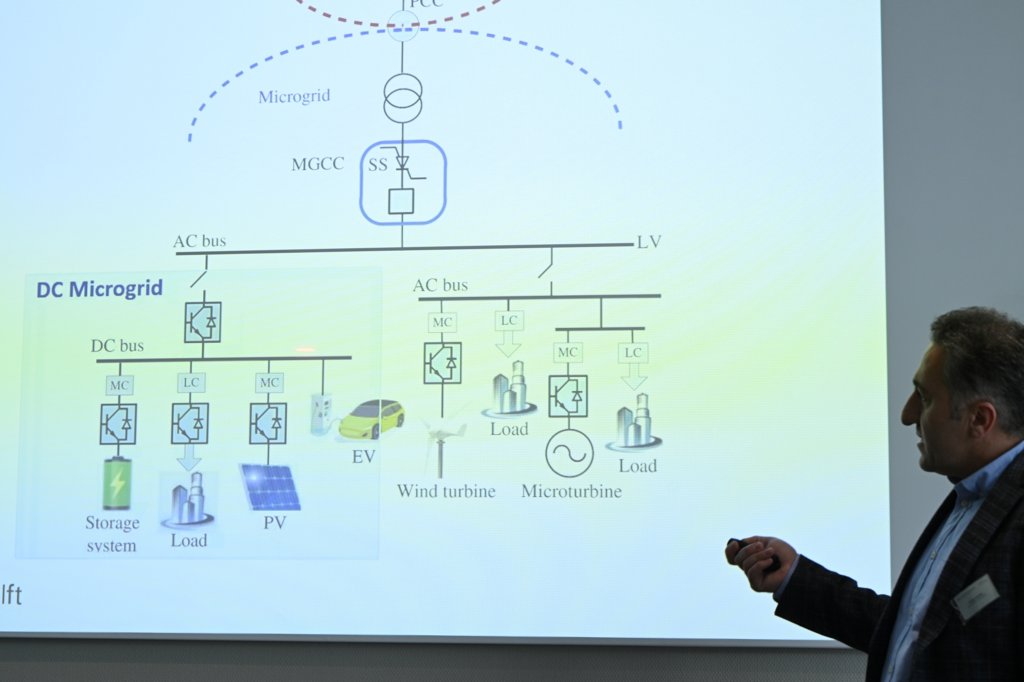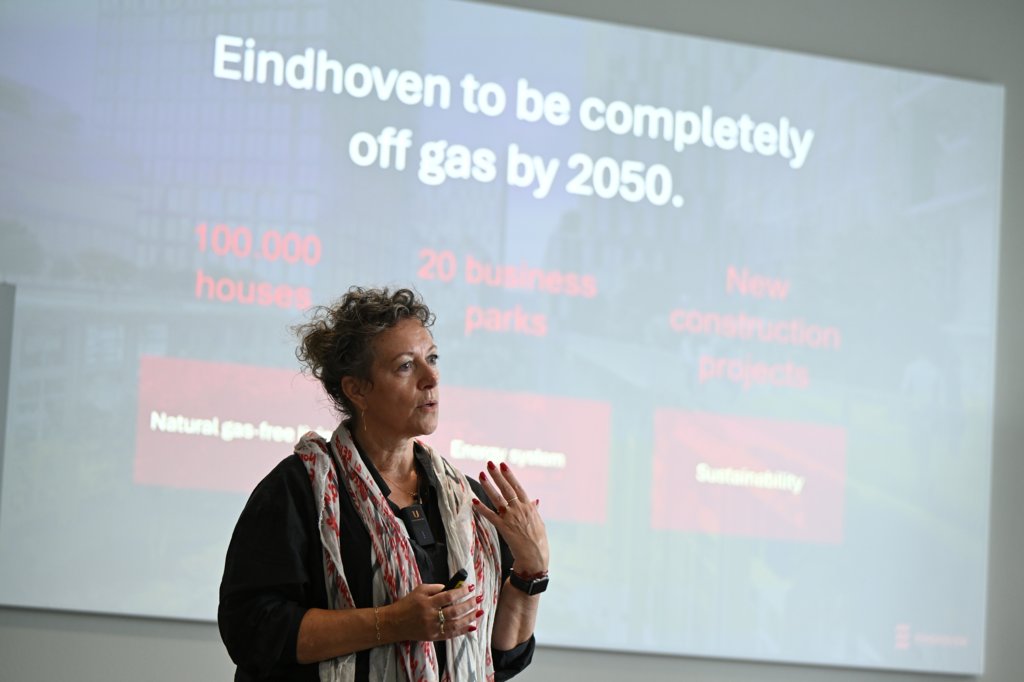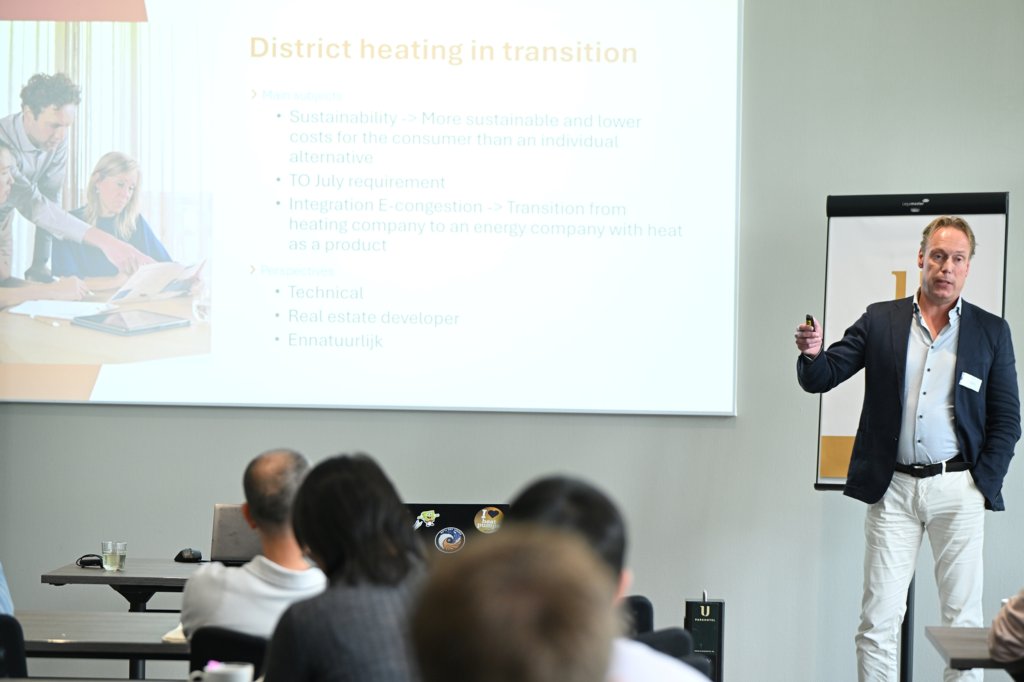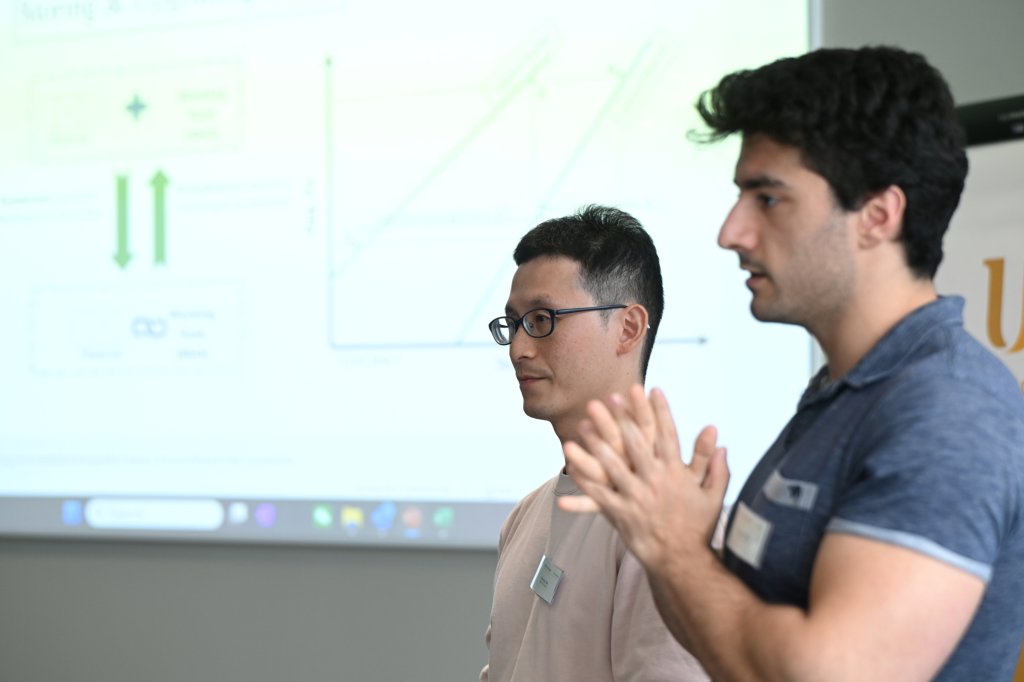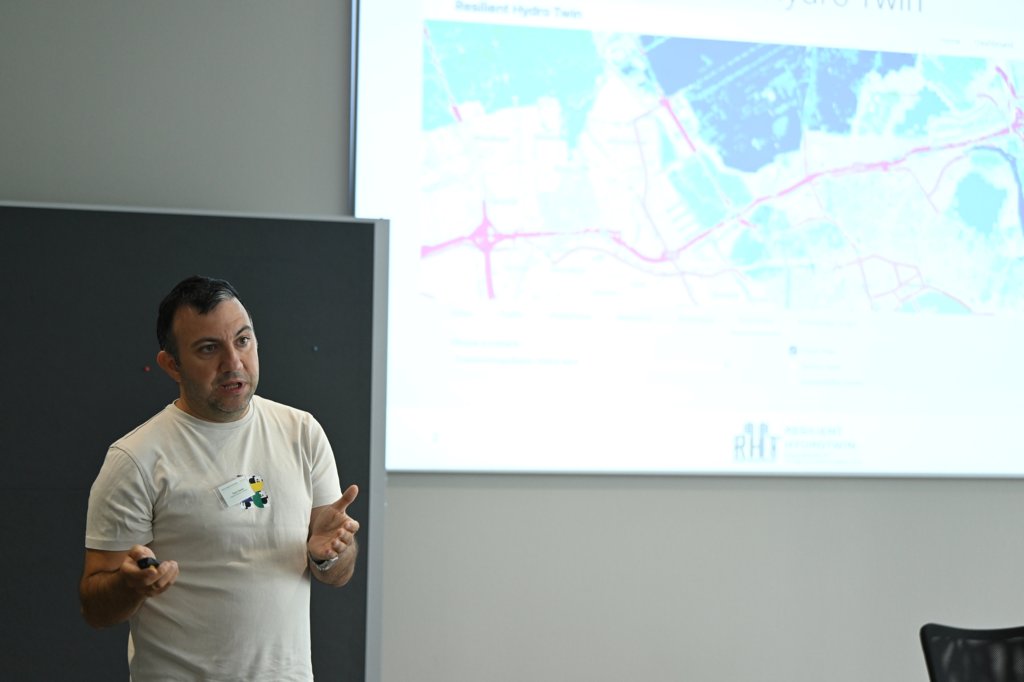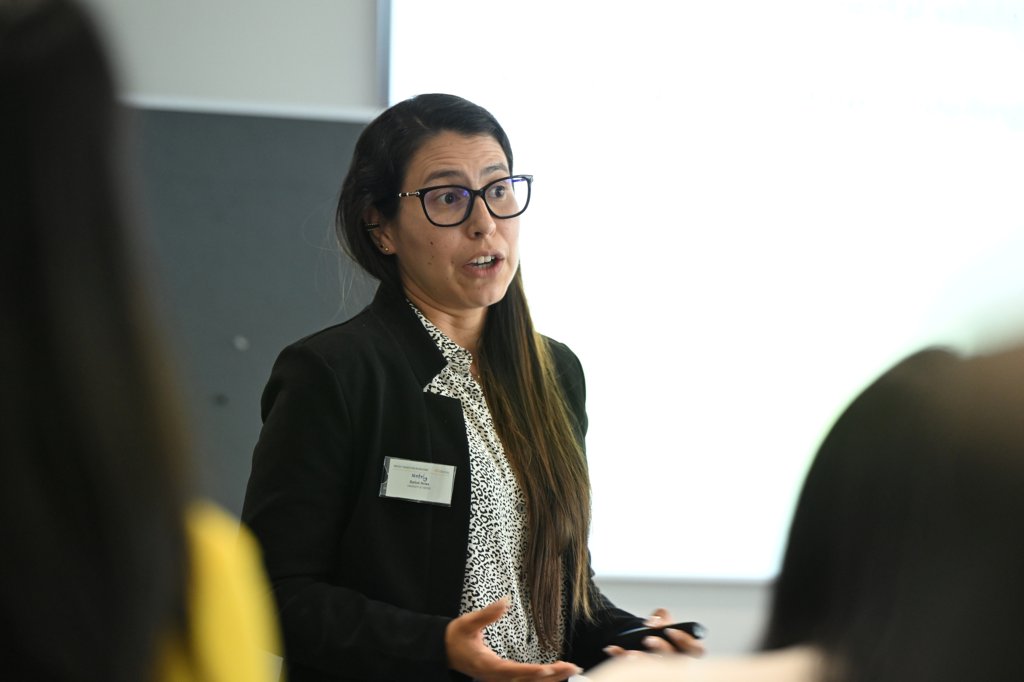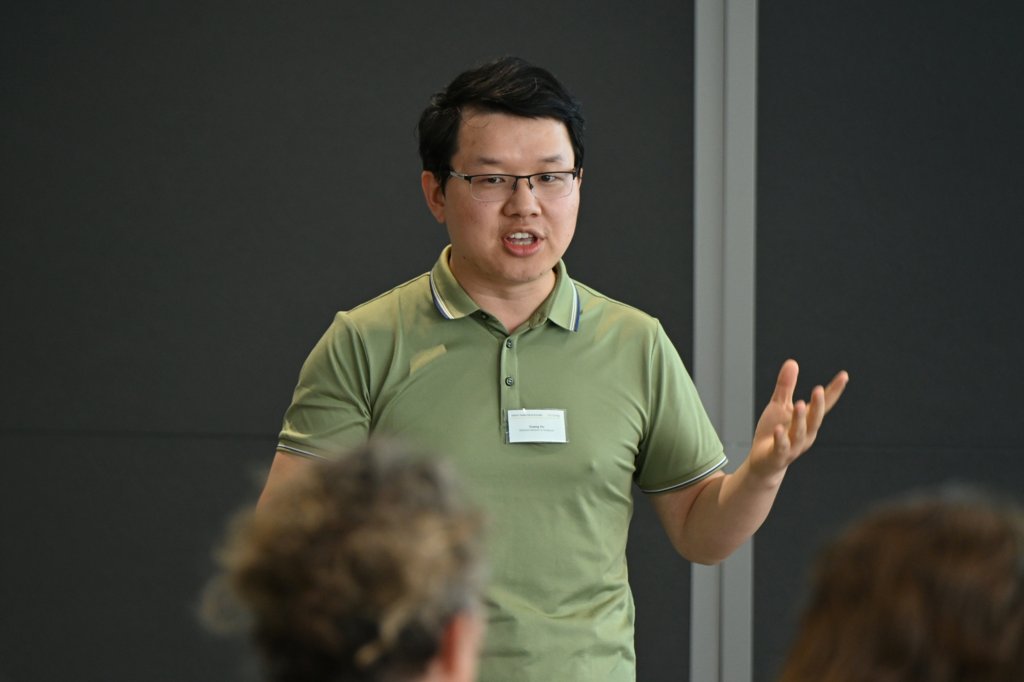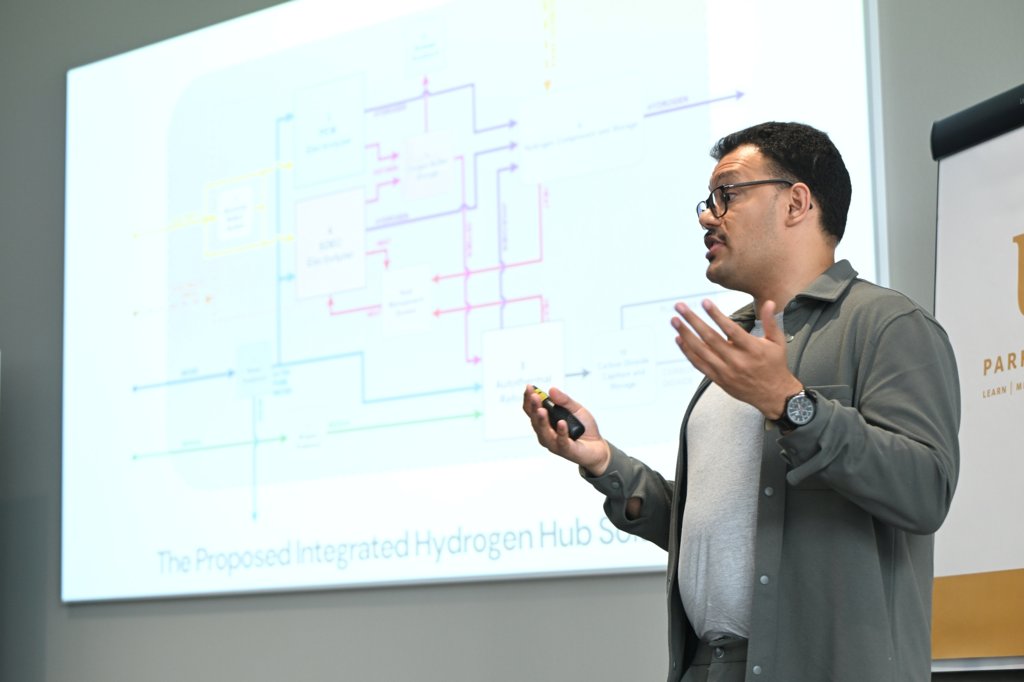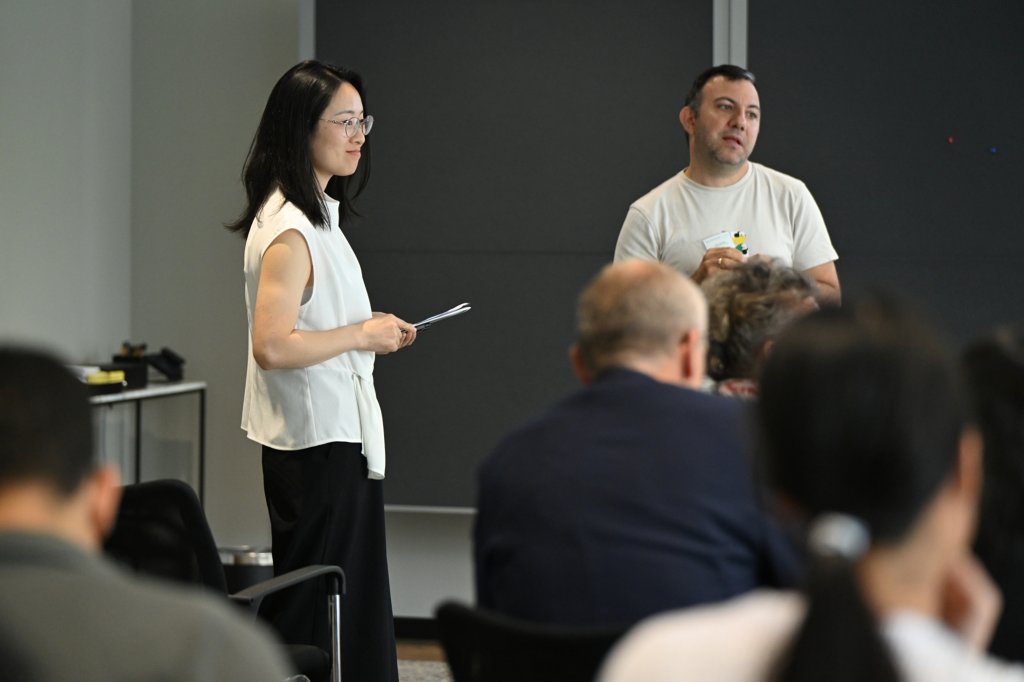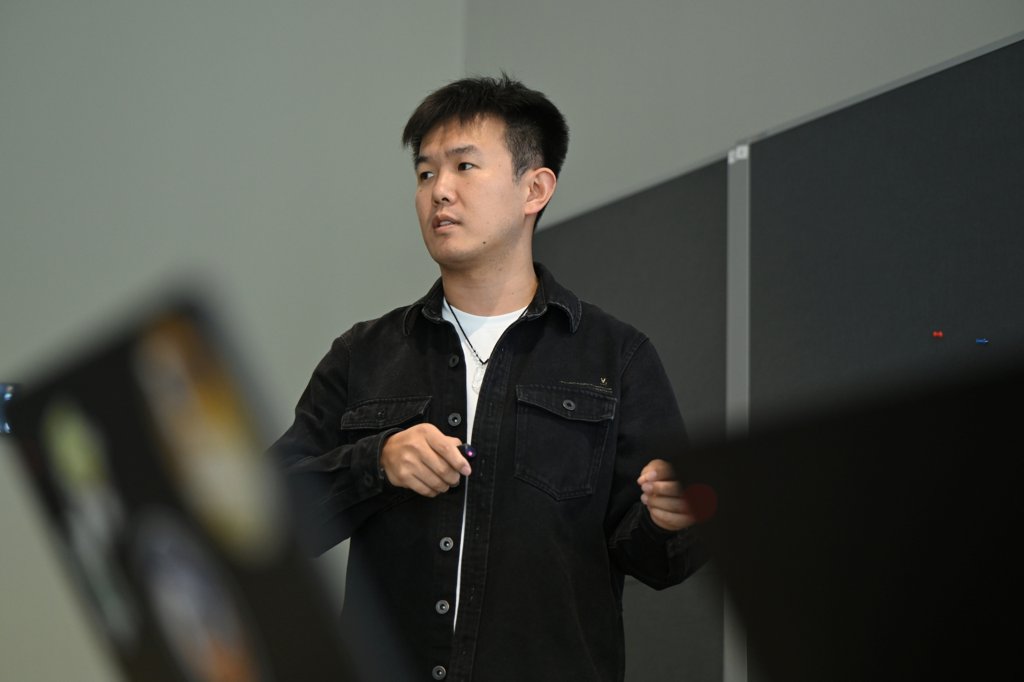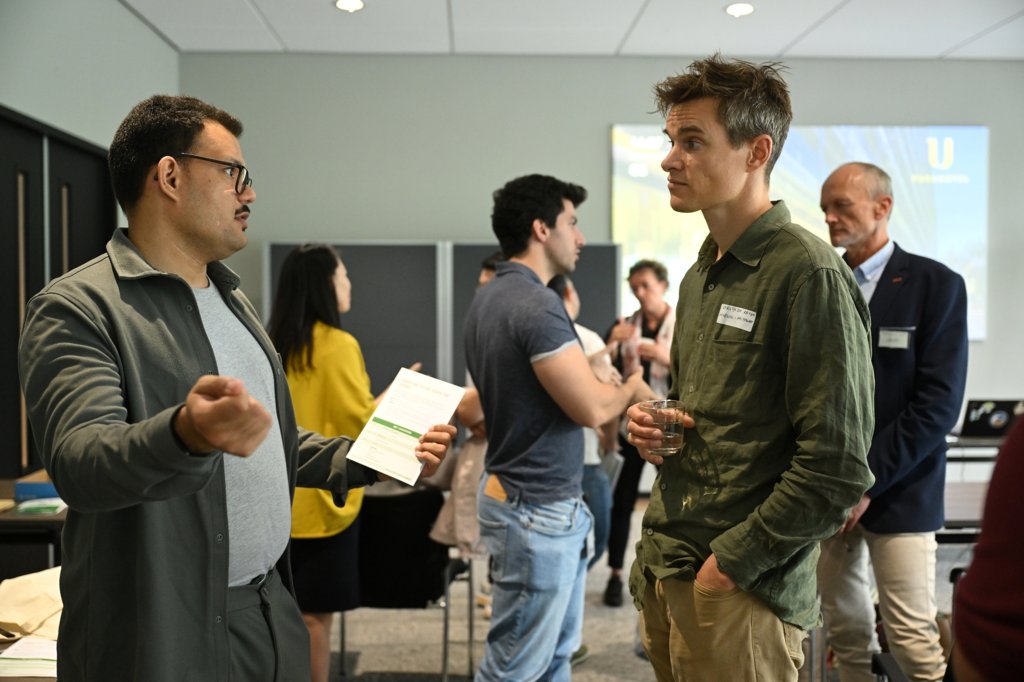A successful Hackathon & Workshop on Energy Transition in Buildings!
On 3–4 September 2025, the University of Twente hosted a two-day hackathon and workshop on Energy Transition in Buildings (BRIDGE – Building energy Responsive Integration of supply and Demand engaGEment). Against the backdrop of an accelerating energy transition that demands innovative and efficient solutions for buildings and cities, the event brought together researchers, students, industry experts, and municipal representatives to explore how building energy supply and demand can be intelligently integrated and co-create ideas for a more sustainable future.
The central challenge of the event was approached from three key perspectives:
- Supply side: Integration of renewable energy sources, district heating and cooling networks, or advanced energy storage technologies.
- Demand side: Improving building energy performance through more accurate demand forecasting, optimization of indoor environments, and reduction of unnecessary energy use.
- Control and Smart Grids: Leveraging artificial intelligence, digital twins, and intelligent control strategies to better balance supply and demand, and enable responsive, resilient energy systems.
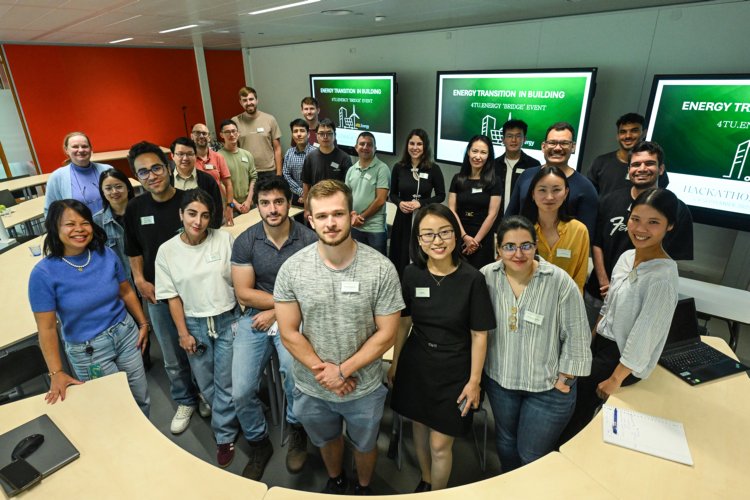
The event was formally opened on the first day by Dr. Sha Lou on behalf of 4TU.Energy. On the second day, participants were honored to be welcomed by Professor Dr. Bart Koopman, Dean of the Faculty of Engineering Technology at the University of Twente, whose opening remarks highlighted the significance of the gathering and set the tone for the discussions that followed.
As lead of the organizing committee, Dr. Tingting Zhu from the University of Twente played a pivotal role throughout the event. On the first day, she and Dr. Aleksandra Lekić (TU Delft) introduced the Hackathon, setting the stage and inspiring participants with its vision and goals. On the second day, Dr. Zhu served as the main host of the workshop sessions, working alongside Dr. Dujuan Yang (TU/e) to guide discussions and create an engaging, productive atmosphere.
Hackathon: Young Researchers Reimagine Energy Futures
A central part of the event was the Hackathon, where four teams of young researchers and students from the 4TU worked intensively for two days, supported by the organizing committee — Dr. Tingting Zhu (UT), Dr. Dujuan Yang (TU/e), Dr. Aleksandra Lekić (TU Delft) — and invited experts Dr. Gerwin Hoogsteen (UT), Dr. Guang Hu (TU/e), and Dr. Abhishek Purandare (UT).
The teams were challenged to generate bold ideas that rethink how buildings connect with energy, whether addressing one component or the whole system, with the goal of making them smarter and more sustainable. On the second day, they presented their results to an audience of academics, industry representatives, and municipal stakeholders. Ideas were evaluated based on innovation and creativity, technical soundness, practical relevance and impact, and clarity of presentation.
- Team aBILITY — Lauro Oliveira (UT), Bei Wang (TU/e), Yingxin Feng (TU/e), Tianchao Xie (UT) — won first prize (€700) with a Neighborhood Energy Label assessing communities on energy use, building labels, density, renewables, storage, and smart control.
- Team Thermal Twente — Alvaro Martinez, Chung-Yu Yeh, Youssef Sourial, Benjamin Schweighauser, Koen Wilms— earned second prize for a technically strong concept to enhance district heating networks by integrating industrial waste heat and surplus renewable electricity with smart processing and advanced heat storage.
- Team Heaters — Rutger Kersjes (UT), Jintian Xu (TU/e), Özgün Balaban (TU/e), Rui Jiang (TU/e), Jorge Cabello (UT) — secured third place with an Energy Portal combining AI-powered coaching, a collaborative wiki, a story wall, and gamified challenges to scale creative heat-saving solutions.
- Team SunSalt — Bahareh Bakhsh Zahmatkesh, Arash Mahdavi, Ramin Roushenas, Fahimeh Dini from UT — impressed the jury with their zero-energy home solution integrating solar PV-thermal systems and thermochemical seasonal storage to balance summer generation and winter demand.
The Hackathon presentations sparked lively discussions with the audience, including questions from industry, municipal representatives, and academics. The teams’ creativity, teamwork, and ability to respond to critical feedback left a strong impression and highlighted potential directions for future research and innovation.
Workshop: Expert Insights and Emerging Research
Alongside the Hackathon, the workshop featured keynote presentations by:
- Dr. Jonas Kjær Jensen (DTU, Technical University of Denmark) on sharing technologies and applications of district heating heat pumps from the Danish district heating sector,
- Dr. Roel Loonen (TU/e) on building-integrated approaches to renewable energy systems,
- Prof. Dr. Wilko Rohlfs (RWTH Aachen University) on empowering Europe’s energy transition with HeatCraftHP,
- Dr. Qobad Shafiee (TU Delft) on Microgrids: Key Building Blocks for Energy Transition.
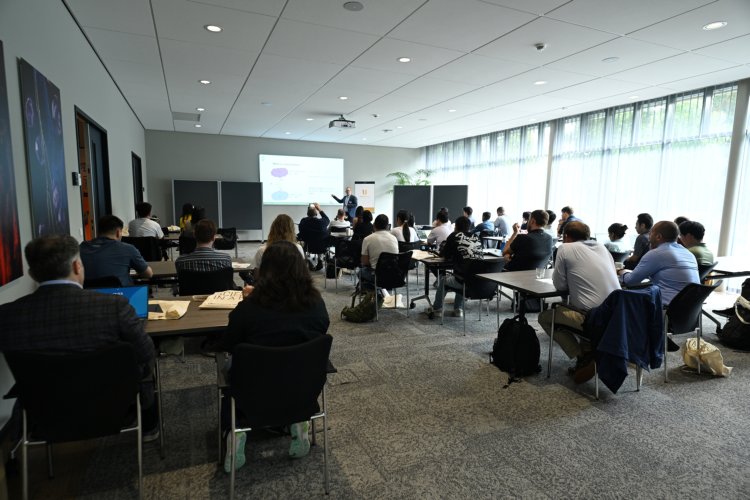
In addition, government and industry experts contributed perspectives:
- Mieke van Schaik (City of Eindhoven, Strategic Advisor CIO-office) highlighted people-focused energy transition projects in Eindhoven.
- Steven MacLean (Ennatuurlijk) presented the company’s role and projects in the energy transition.
A pitch session offered young researchers, postdocs, and PhD candidates the opportunity to showcase their work and connect with leading academics, policymakers, and industry professionals, fostering collaborations that can inspire new directions and practical applications.
Conclusion and Acknowledgements
The 4TU.Energy Transition in Buildings event provided a unique platform for knowledge exchange, inspiration, and collaboration between academia, industry, and municipalities. It highlighted both the challenges and the opportunities of accelerating the energy transition in buildings and neighborhoods.
We thank 4TU.Energy for funding this event, and extend special appreciation to the organizing committee and assistants who supported its realization, in particular, Tingting Zhu, who managed the process with great dedication. Thanks also to all experts, keynote speakers, and participants in the hackathon, workshop, pitches, and poster sessions. Together, we made this an unforgettable event and took meaningful steps toward a more sustainable future in the built environment.
Acknowledgment to the Organising Team
Dr. Tingting Zhu (UTwente), Dr. Dujuan Yang (TU/e), Dr. Aleksandra Lekić (TU Delft), Dr. Sha Lou (4TU.Energy), Bei Wang (TU/e), Benjamin Schweighauser (UTwente), Jeanine Lodeweges-de Vries (UTwente).
The programme for both days:
